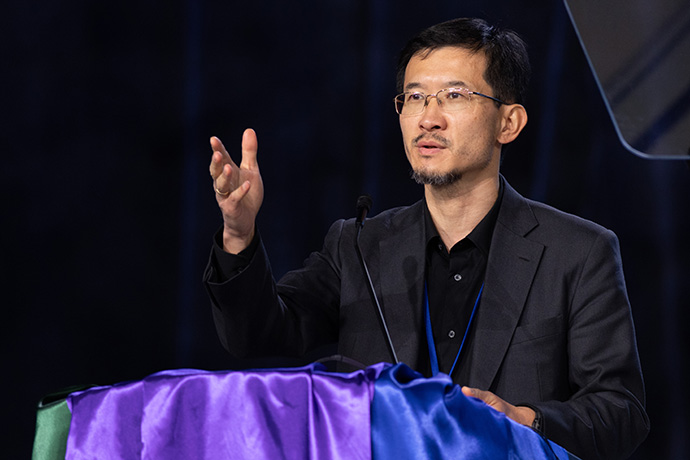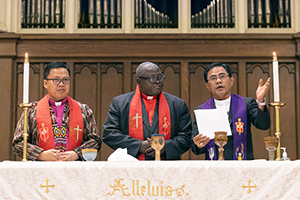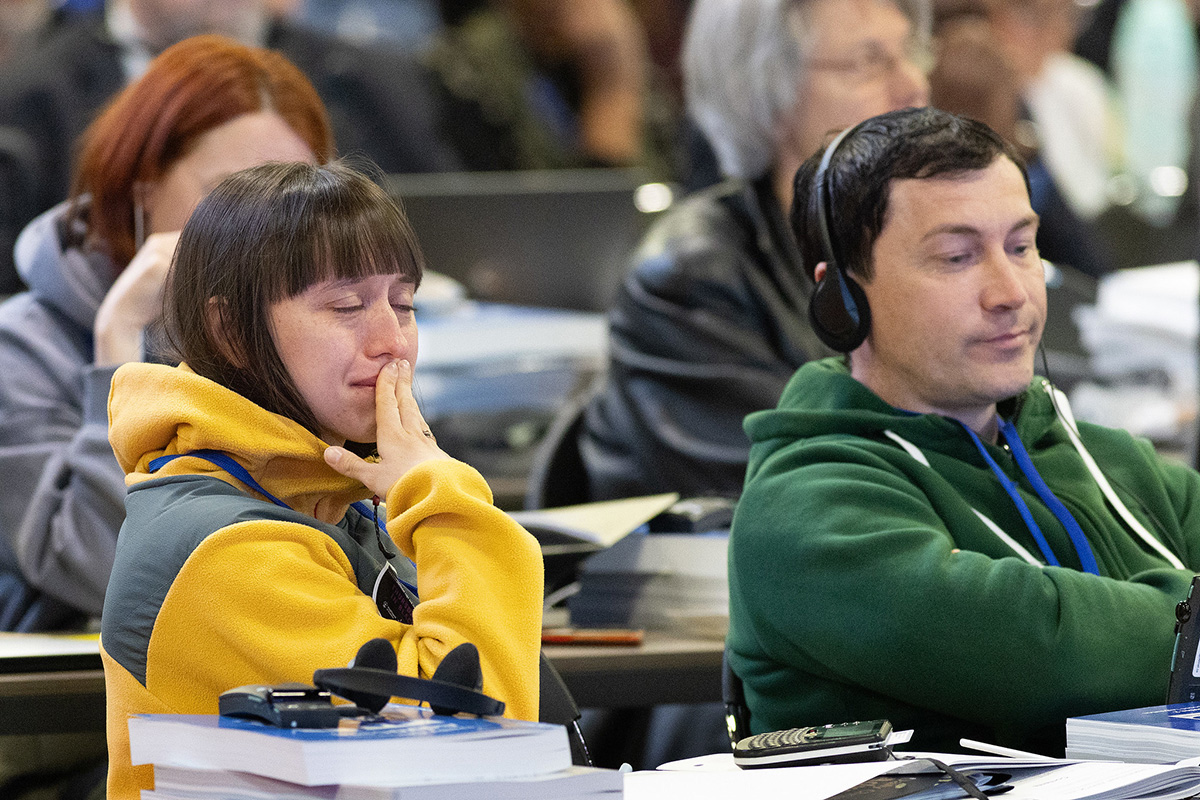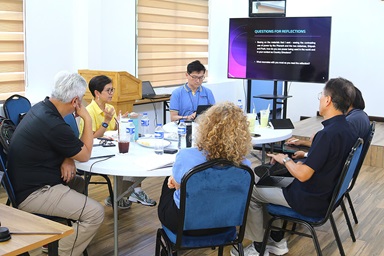Key points:
- General Conference approved the move of Eurasian annual conferences to form an autonomous denomination.
- The conferences encompass churches in Russia, Belarus, Kyrgyzstan and Kazakhstan.
- In leaving The United Methodist Church, Eurasia is following a provision in the Book of Discipline.
On the same day The United Methodist Church moved toward regionalization, General Conference delegates approved the exit of churches in one of its regions.
By a vote of 672 to 67, the delegates approved the departure of four Eurasian annual conferences — which encompass churches in Russia, Belarus, Kyrgyzstan and Kazakhstan. Together, the four plan to form the autonomous Christian Methodist Church.
The four Eurasian annual conferences — all led by Bishop Eduard Khegay, who is also leaving — have 66 churches in total. Altogether the conferences had more than 1,800 members, according to the conference votes to depart.
“Sisters and brothers, I stand in gratitude for your decision,” Khegay said after the vote.

While the departure won’t be final until next year, he acknowledged that this will be his and his delegations’ final General Conference.
“During my 12 years of episcopal ministry, I have faced many challenges and hardships in Eurasia — the East-West divide, the geopolitical struggles between superpowers, economic ups and downs and theological controversies,” he said. “But today I want to express my gratitude.”
The departure comes amid growing political tensions between Russia and the U.S. since Russia’s invasion of Ukraine as well as ongoing theological disagreements between the traditionalist Eurasian United Methodists and their fellow western European and U.S. United Methodists.
Nevertheless, Khegay made clear how thankful he is to United Methodists in both the U.S. and western Europe for supporting the people of Eurasia. Among those, he thanked was the Rev. Adam Hamilton, senior pastor of Resurrection, a United Methodist Church in Leawood, Kansas.
Hamilton has been one of the champions of regionalization and eliminating church bans on same-sex weddings and “self-avowed practicing” gay clergy.
In expressing the gratitude of churchgoers in his region, Khegay described the history of the Methodist presence in Eurasia going back to before the Russian Revolution in 1917 and after the dissolution of the Soviet Union in 1991.
“We want to say thank you very much for all the support your churches have shared over the last 30-plus years and even in the early part of the 20th century,” he said.
United Methodists from the West, he said, brought Bibles, shared testimonies, built church buildings and financially supported the Moscow Theological Seminary.
“You even taught us how to eat peanut butter sandwiches,” he joked to laughter from the delegates.
Subscribe to our
e-newsletter
In exiting the denomination, the annual conferences of Eurasia are following the multistep process in Paragraph 572 in The United Methodist Church’s Book of Discipline. That provision allows annual conferences within central conferences — church regions in Europe, Africa and the Philippines — to change their relationship with the denomination.
Before coming to the floor of General Conference, the multiple steps included approval by the four annual conferences themselves, the Northern Europe and Eurasia Central Conference of which they are a part and the Standing Committee on Central Conference Matters, a permanent committee of General Conference.
The Eurasian annual conferences also worked with the ecumenical office of the Council of Bishops in moving toward autonomy.
Their exit becomes official when the Northern Europe and Eurasia Central Conference meets next year.
Paragraph 572 was last used about a decade ago when Swedish United Methodists asked to leave The United Methodist Church to join with the Uniting Church in Sweden. The United Methodist Church now has full communion with the Uniting Church in Sweden.
United Methodist churches in the Ukraine-Moldova Provisional Conference plan to remain in the denomination.
Hahn is assistant news editor for UM News. Contact her at (615) 742-5470 or newsdesk@umnews.org. To read more United Methodist news, subscribe to the free daily or weekly Digests.





